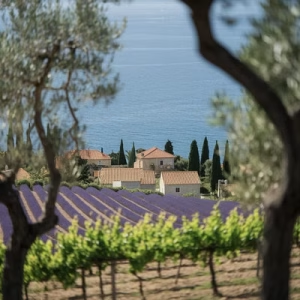Buying property in Croatia—especially in the picturesque region of Dalmatia—can be an excellent investment opportunity. Whether you’re interested in traditional stone houses, olive groves, or land for development, understanding the legal procedures, real estate market, and key steps involved is essential for a successful purchase.
1. Choosing the Right Location
Croatia offers a wide range of real estate options—from charming coastal towns and islands to tranquil rural villages rich in history. If you’re seeking privacy and authenticity, traditional stone houses in the Dalmatian hinterland may be ideal. On the other hand, seafront properties are in high demand and typically hold greater investment value.
2. Legal Requirements for Foreign Buyers
For EU citizens, the property buying process in Croatia is straightforward and on par with that of local buyers. Non-EU citizens may need additional approvals from the Ministry of Justice. Regardless of your nationality, hiring a real estate lawyer specializing in Croatian property law is highly recommended to ensure compliance and security.
3. Checking Property Documentation
Before proceeding with a purchase, it’s vital to review:
- The land registry (ZK excerpt)
- Possession certificate
- Urban planning documents
Make sure the property is free of liens or ownership disputes. You should also verify whether the land is zoned as residential, agricultural, or commercial, as this directly affects your development plans.
4. Financing and Associated Costs
In addition to the purchase price, foreign buyers should budget for:
- Real estate transfer tax (3%)
- Lawyer and notary fees
- Document translation costs
- Renovation expenses (especially for older stone houses)
Pro Tip: Budgeting for hidden costs ensures you avoid surprises later in the process.
5. Renovation and Restoration
If you’re purchasing a historic stone house, renovation may be necessary. Using traditional materials like stone and wood helps preserve authenticity, while incorporating modern comforts adds long-term value. Always check whether you need building permits before starting any renovation work.
6. Investment Opportunities and Rental Potential
For those interested in real estate investment in Croatia, renting your property to tourists is a popular option. To do this legally, you must register for a tourism license and meet the standards for holiday accommodation. Additionally, properties such as olive groves or vineyards can generate income through local product sales.
Conclusion
Buying property in Croatia can be both a lifestyle upgrade and a smart financial move. With the right preparation, legal support, and investment vision, your dream of owning a home in Dalmatia can become a reality—whether for personal use or long-term gain.




